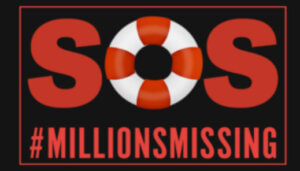Author of the ME/CFS Research Review blog, Simon McGrath, has written an article about Dr W. Ian Lipkin’s theory that the body’s response to changes in the gut could be what’s driving ME/CFS for at least some patients.
A gut reaction is the problem in ME/CFS – that’s the main idea being pursued by Dr W. Ian Lipkin of the Center for Infection and Immunity at Columbia University. He believes that the body’s response to changes in the gut could be what’s driving ME/CFS for at least some patients.
Lipkin’s collaborative group, the Center for Solutions for ME/CFS, will test this theory as part of a $9.6 million, five-year research programme, which Lipkin was good enough to discuss with me via phone and email.
This huge research programme, which is funded by the National Institutes of Health (NIH), is made up of three main projects. This blog looks at the first two, which will use high-tech approaches to see if changes in the gut are causing changes in the body, particularly in the immune system. The third project, which looks at the biological response to exertion in ME/CFS, will be covered in the next blog.
Evidence from research supports the idea that gut problems could lead to ill health. Inside the gut, trillions of microbes – viruses, bacteria and fungi – form an ecosystem. Some are hitching a free ride, but many are useful, crowding out harmful microbes, helping us to digest our food or providing essential nutrients such as vitamin K.
But sometimes the ecosystem can get out of balance, with too many of particular types of microbes or too few. This “dysbiosis” can play an important role in conditions such as inflammatory bowel disease.
This is where Lipkin comes in. He suspects dysbiosis as a possible cause for ME/CFS and sees two main possible mechanisms leading to disease. One could be through the metabolites produced by an unhealthy microbial ecosystem. Metabolites are small molecules that are a core part of the chemical processes that sustain life, and undesirable ones from microbes could enter the bloodstream from the gut.
Lipkin told me that these metabolites could be creating ME/CFS symptoms by, for instance, altering mitochondrial activity and so causing fatigue, or even affecting the brain, which could lead to brain fog and other cognitive problems.
Read the full blog post.

SOS: Save our Science
People disabled by ME and Long Covid across the UK send out an SOS. It’s time to send out our SOS signal, if we want to have funded research. May 12th, is Myalgic Encephalomyelitis Awareness Day. On this day, the #MillionsMissing of people with myalgic encephalomyelitis (ME) gather to demand an increase in research and




2 thoughts on “The Microbiome Hypothesis: Lipkin’s Collaborative, Part 1”
It wasn’t until I started using strong probiotics that my symptoms started to decrease although fatigue in some form still remains but I am doing so much more. The interesting thing was that I suffered with “under the radar’ gut problems for years.
This research is great news.
Thanks very much for hosting my blog.
Comments are closed.